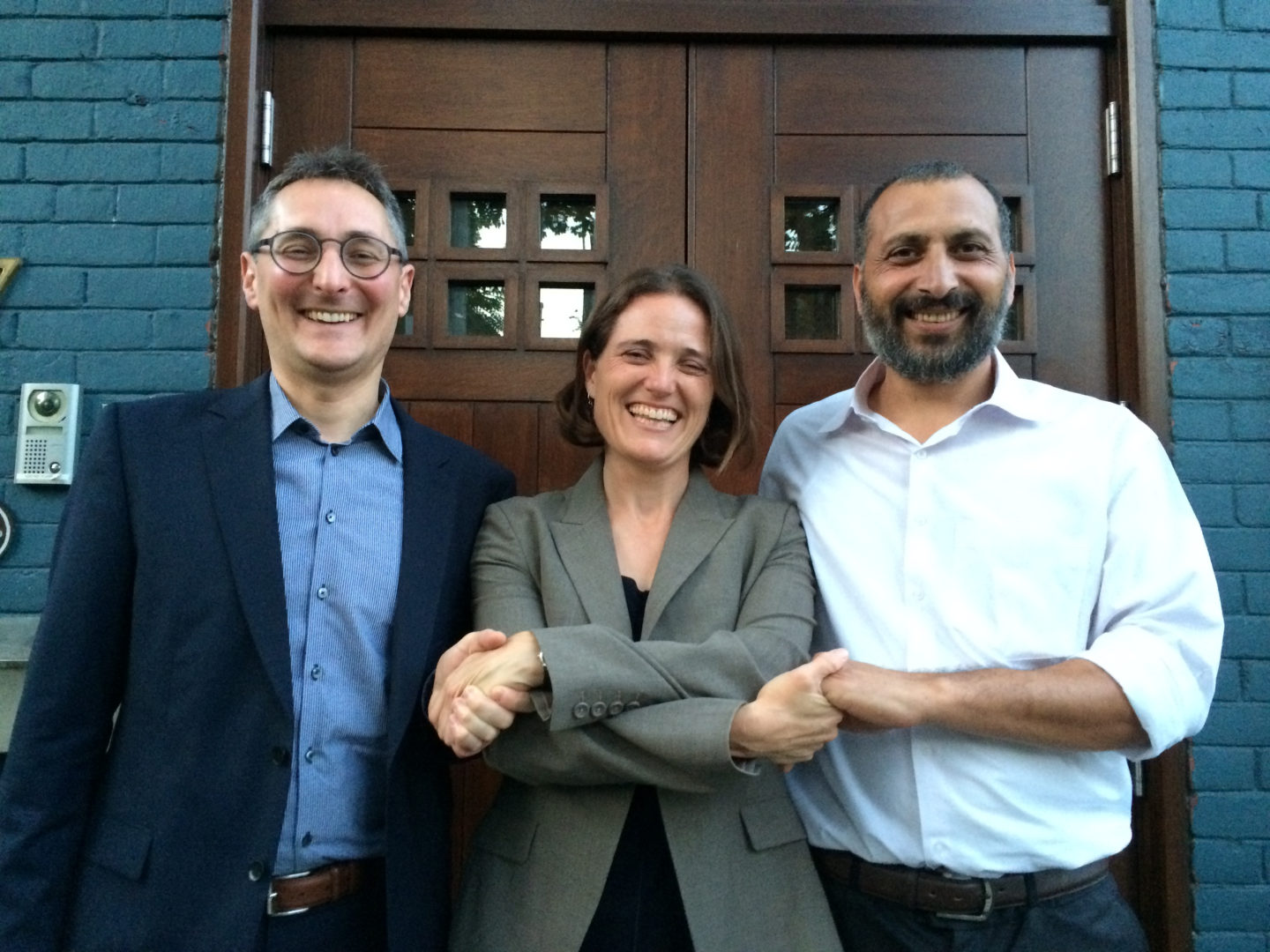Mohamad Marzouk, a social-political activist for some 20 years, has focused much of his work on the advancement of civil society in Arab communities in Israel, as well as on peace education between Jewish and Arab Israelis.
When the oldest of his three children was ready to attend kindergarten in 2000, Marzouk was participating in a group promoting Jewish-Arab dialogue. The members decided the best way to build lasting relationships between Arab and Jewish Israelis was to create a school attended by both groups.
After hearing about Hand in Hand Center for Jewish-Arab Education in Israel, an organization that had started two bilingual (Hebrew and Arabic) schools for Jewish and Arab Israeli children, Marzouk’s group founded a third branch of Hand in Hand in Wadi Ara. He sent his three children there.
READ: MONTREAL RABBI TO MEET POPE TO FURTHER ARAB-JEWISH TIES
Marzouk, director of the community department of Hand in Hand, was one of two representatives of the organization who spoke at the First Narayever Congregation on May 30.
The event, which drew about 50 people, was organized by JspaceCanada, First Narayever and the Jerusalem Foundation of Canada, a strategic and supporting partner of Hand in Hand.
Marzouk’s co-presenter that evening was Rebecca Bardach, the U.S.-born director of resource development and strategy at Hand in Hand and a parent with three students at the Jerusalem branch, the largest and oldest of the six schools.
She said that by choosing this school for their children, she and the other parents are trying to find a solution to Jewish and Arab coexistence in Israel that is equal and inclusive.
The Hand in Hand program – it offers bilingual (Arabic and Hebrew) education for its Arab and Jewish students – celebrates all the Christian, Jewish and Islamic holidays.
People in attendance asked how the school dealt with Yom Ha’atzmaut (Israel Independence Day) and the Nakba (the Arab word for catastrophe), which is how Israelis of Arab descent mark the day.
“We talk about it,” Marzouk responded. “When people experience difficulty, we talk about it.”
Hand in Hand began in 1998 with 50 students. Today there are 1,320 students attending schools in Wadi Ara, Tel Aviv-Jaffa, Haifa and Tira-Kfar Saba, as well as the first two schools in Jerusalem and Galilee.
READ: BUILDING BRIDGES BETWEEN JEWS AND MUSLIMS
Hundreds of families are on the waiting list, Bardach said. “The trajectory of growth has been upwards.
“There are 10 or 12 groups who are saying, ‘We want your next school to be in our city. We want to be part of creating something different.’”
The school is publicly funded, but the program also requires philanthropic support, and parents must pay an additional $1,200 in tuition, she said, adding that scholarships are available.
Marzouk spoke about the importance of establishing social networks for the schools’ parents. “It did not make sense for the children to do something that we [the adults] were not doing ourselves.
“The program offers vibrant adult activities so that the children and adults are engaged with each other. We wanted to create a community structure that could maintain the relationships and withstand political pressure.”
He pointed out that 90 per cent of the Arab and Jewish populations in Israel live separately. “An Arab child living in a village can grow up without seeing the other side.”
“A lot of people [in Israel]are giving up, Bardach lamented. “They say both sides [Arabs and Jews] are too entrenched to ever live together. They are resigned to an endless conflict. But people involved in Hand in Hand are not ready to be condemned to an endless conflict. Their aspiration is for something else.”
READ: INTERFAITH PANEL DISCUSSION TOUCHES ON CONTEMPORARY POLITICS
Toronto resident Elizabeth Ennis, administrator of the Edith and Bernard Foundation, said her family foundation supports Hand in Hand because it offers a viable solution to coexistence for all Israeli citizens. “When I visited the school, I was very taken with the program. I was so excited because it promotes peace.”
Ayah Victoria McKhail, a first generation Canadian of Palestinian descent who attended the Hand in Hand presentation, said she was inspired by the program. “It gives me hope for the future.”
